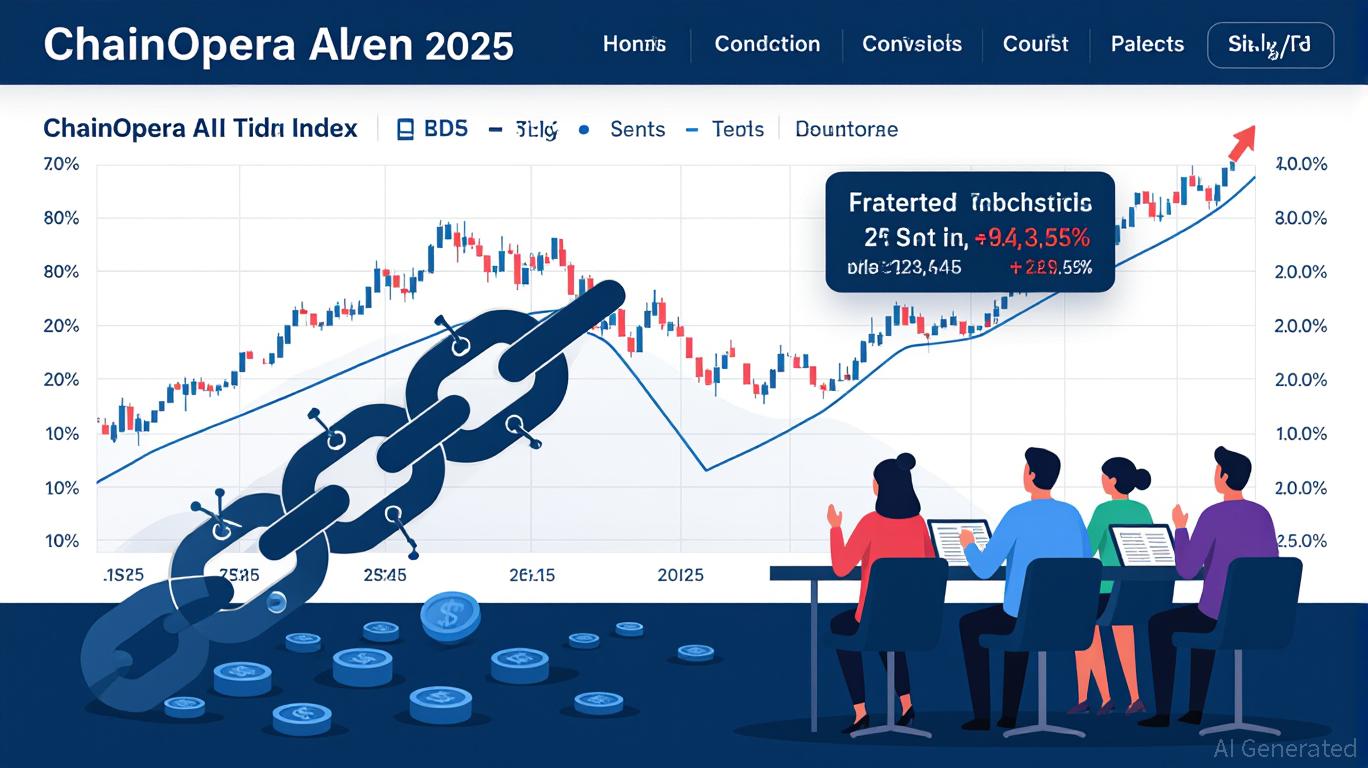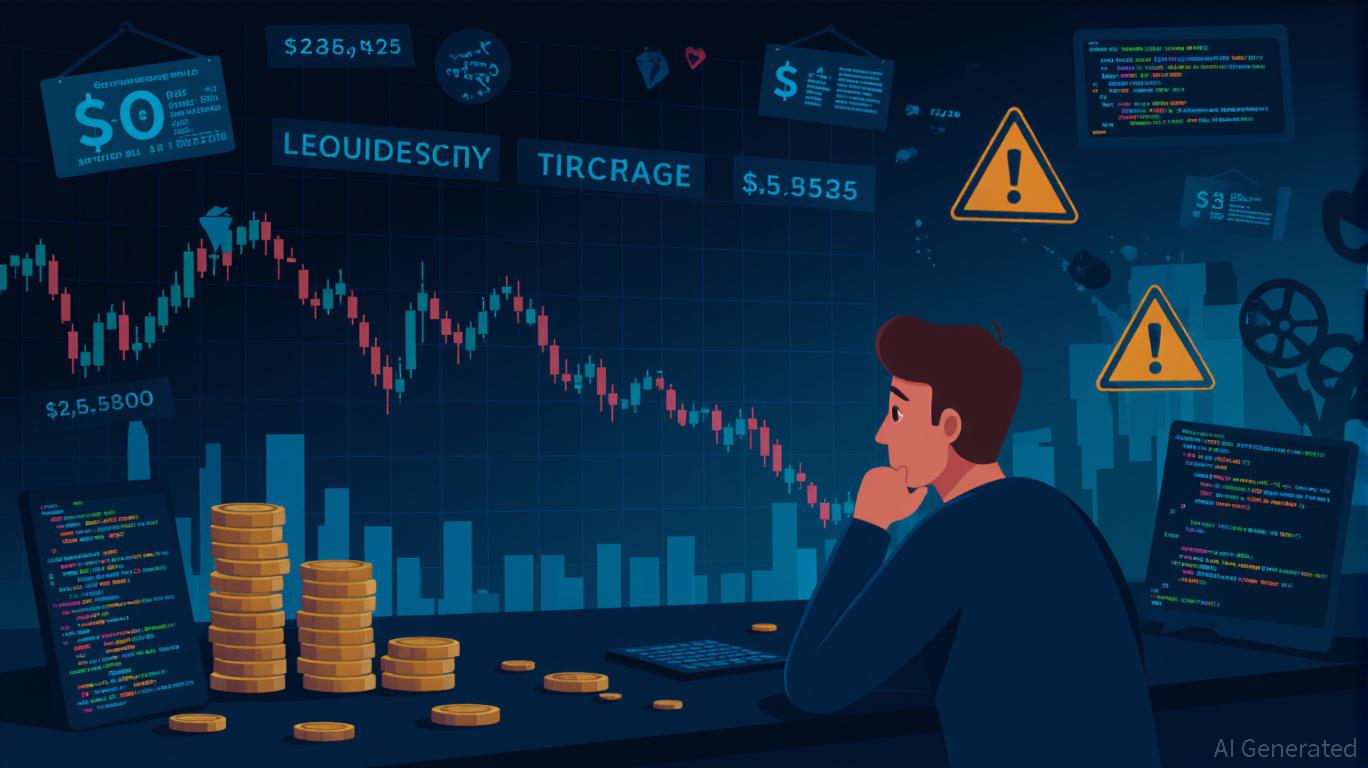Abu Dhabi’s AI-Centric Strategy Draws 7,000 Attendees to Blockchain Expo 2025
- Abu Dhabi's Blockchain Show 2025 attracted 7,000 participants, reinforcing its AI/digital innovation leadership through Mondevo's $13B strategy-aligned global HQ and 200+ AI government solutions. - BestChange enhanced crypto accessibility with Telegram integration while Treasure Global invested in OXI Wallet, reflecting growing demand for institutional-grade digital asset platforms. - Dubai Chambers expanded U.S. operations and DBS-Ant collaboration enabled cross-border payments, showcasing Gulf's AI/blo
The Global Blockchain Show 2025 in Abu Dhabi, which attracted 7,000 attendees, has further established the city as a center for AI and digital transformation, highlighted by significant announcements from leading finance and technology companies. Mondevo Group, an AI-focused wealth and innovation platform,
Mondevo’s move is in step with Abu Dhabi’s larger economic ambitions. The emirate is working to become the first government in the world fully powered by AI, implementing more than 200 AI-driven solutions across its public sector.

At the same time,
In addition to corporate developments,
Partnerships were also a highlight.
These initiatives highlight the Gulf region’s determined shift toward AI, blockchain, and digital finance. With Abu Dhabi’s AI-centric government and Dubai’s proactive global expansion, the area is not only drawing investment but also reshaping the future of financial systems. As Mondevo’s Otaibi remarked, “Abu Dhabi is building the future from first principles”—a view shared by companies investing in the emirate’s dynamic ecosystem.
Disclaimer: The content of this article solely reflects the author's opinion and does not represent the platform in any capacity. This article is not intended to serve as a reference for making investment decisions.
You may also like
H-1B Enforcement at Odds with Trump’s Stated Reliance on Overseas Labor
- Trump's administration launched 175 H-1B visa investigations targeting wage fraud and fake work sites to "protect American jobs." - The crackdown contradicts Trump's admission that U.S. industries face critical skills gaps requiring foreign labor in tech and manufacturing. - A South Korean EV battery plant worker raid and corporate critiques highlight tensions between immigration enforcement and labor shortages. - Proposed $2,000 tariff dividends risk inflation while H-1B restrictions test the viability

U.S. Debt Fluctuations Surge Amid AI-Driven Borrowing Growth and Fed Faces Fiscal Uncertainty
- U.S. Debt Volatility Index hits one-month high in November, reflecting market anxiety amid government shutdown resolution and fiscal risks. - AI infrastructure debt surges 112% to $25B in 2025, driven by tech giants’ $75B in bonds for GPU/cloud projects, raising overleveraging concerns. - Fed faces mixed signals: October job losses push December rate cut odds to 68%, while gold/silver rise 2-3% as investors seek safe havens amid fiscal/geopolitical risks. - Delayed economic data from shutdown complicates

ChainOpera AI Token Plunge: An Alert for Investors in AI-Based Cryptocurrencies
- ChainOpera AI Index's 54% 2025 collapse exposed systemic risks in AI-driven crypto assets, driven by governance failures, regulatory ambiguity, and technical vulnerabilities. - C3.ai's leadership turmoil and $116.8M loss triggered sell-offs, while the CLARITY Act's vague jurisdictional framework created legal gray areas for AI-based crypto projects. - Model Context Protocol vulnerabilities surged 270% in Q3 2025, highlighting inadequate governance models as 49% of high-severity AI risks remain undetected

Navigating the Dangers of New Cryptocurrency Tokens: Insights Gained from the COAI Token Fraud
- COAI token's 2025 collapse exposed systemic risks in algorithmic stablecoins, centralized governance, and fragmented regulatory frameworks. - xUSD/deUSD stablecoins lost dollar peg during liquidity crisis, while 87.9% token concentration enabled panic selling and manipulation. - Regulatory gaps pre-collapse allowed COAI to exploit loosely regulated markets, but post-crisis reforms like MiCA and GENIUS Act now demand stricter compliance. - Investor sentiment shifted toward transparency, with demand for re
